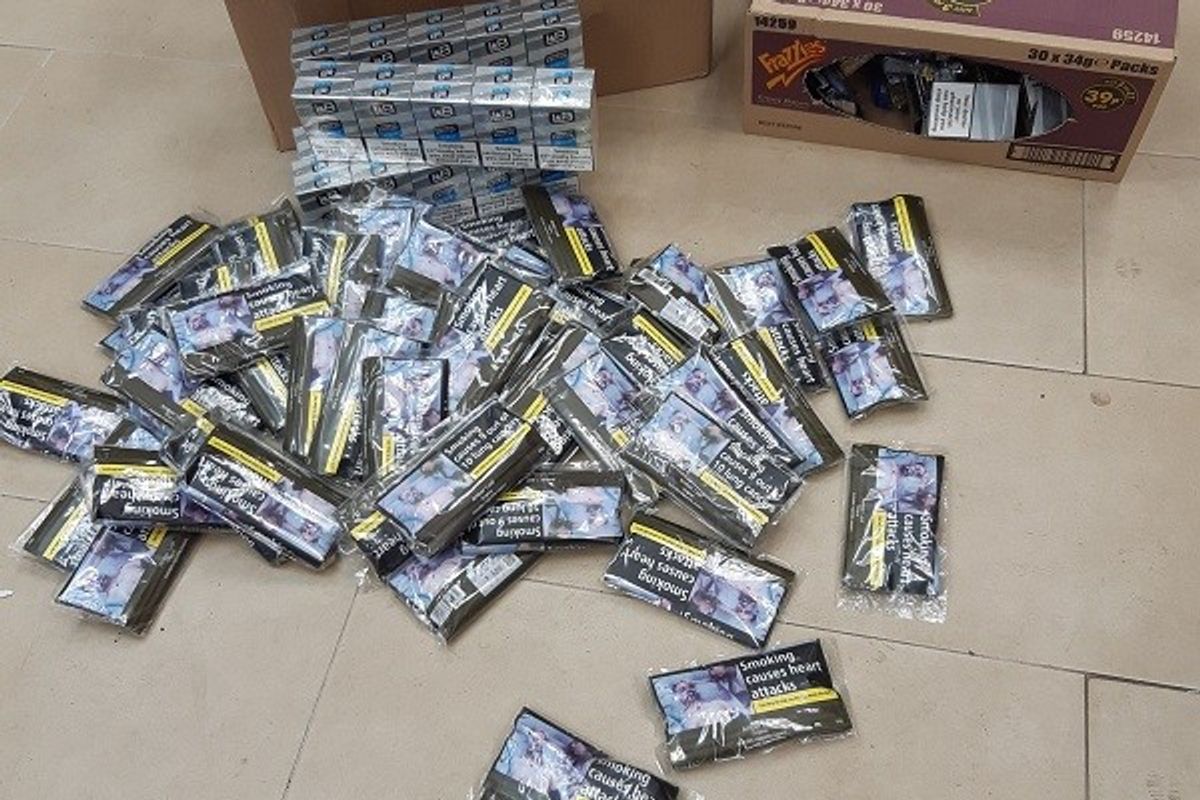A number of illicit tobacco products were seized in Redditch on Tuesday (8) in a joint operation by officers from Abbey and Batchley policing teams and Worcestershire Trading Standards.
The search resulted in a number of boxes of tobacco products being seized which are believed to be illegal.
“Officers from Abbey and Batchley have supported Trading Standards this afternoon,” Redditch Police tweeted.
“This resulted in a number of tobacco products being seized which are believed to be illegal. Good work by all involved. GM.”
Elsewhere in Slough, more than 1,000 illegal cigarettes were recovered by two Slough Borough Council sniffer dogs last week.
Trading standards officers visited seven shops in the town last week on the hunt for illegal tobacco, and were assisted by Cooper, a red labrador, and Yo-Yo, a cocker spaniel.
In total, four seizures were made – three from shops and one from the boot of an unlocked and abandoned car – with a street value of more than £10,000.
The operation was part of an ongoing campaign to eliminate the illegal tobacco trade in Slough.
Illegal tobacco, often sold for less than legal and taxed products, means shopkeepers can undercut the prices of other nearby premises, leading to unfair competition.
Councillor Balvinder S Bains, cabinet member for regulation and public protection at Slough Council, said: “Our aim is to rid Slough of people selling and buying illegal tobacco on the cheap.
“It may be residents don’t realise they are buying illegal tobacco, or they don’t care because it is cheap, however the shopkeepers certainly should know it is illegal and that they are breaking the law by selling it, however covertly.
“These retailers are not only cashing in selfishly in a way unfair to other shopkeepers but damaging the local economy in a way potentially dangerous to residents.
“We will not tolerate this in Slough, and we will not hesitate to take action against those we find flouting the law.”
Further action against the premises where illegal tobacco was found is now being considered, including prosecution for the offences.


